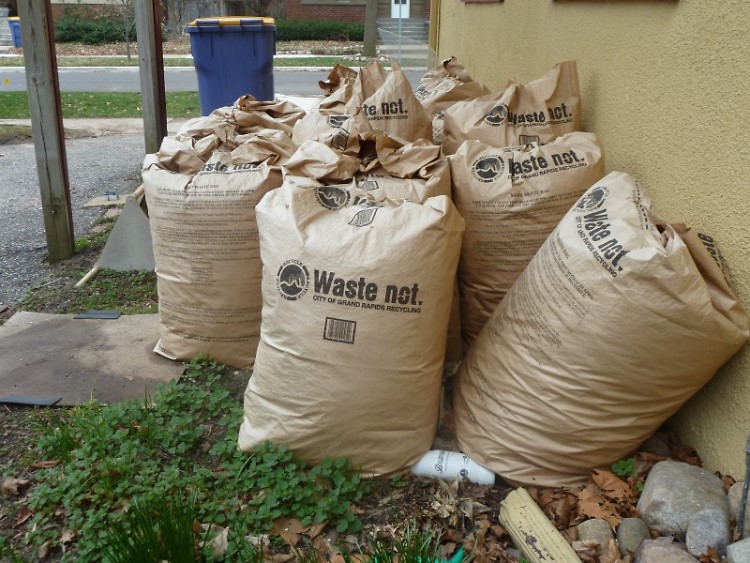The Michigan House of Representatives passed a package of bills that would allow the commingling of yard clippings and garbage in landfills, a move that has local environmental experts concerned.
The House Energy and Technology Committee passed House Bills 4266 and 4265, which propose allowing yard waste to be placed in the garbage, so landfills can collect the excess methane from that waste and use it as an energy source. A similar bill is currently in the Michigan Senate.
“Burning landfill methane is not an optimal use for methane and comes with major negative environmental consequences” said Nick Occhipinti of West Michigan Environmental Action Council.
Officials from the City of Grand Rapids agree that these laws are not good for the area, but for other reasons.
“We opposed [the laws],” said Haris Alibasic, Director of the Office of Energy and Sustainability for the city of Grand Rapids. "Our concerns with these two bills go beyond the negative environmental impact it will have on our communitites, but also negative economic implications from such attempts to change sound business practices in managing yard waste."
Currently, Michigan residents are required to separate yard waste from trash under the state's Natural Resources and Environmental Protection Act of 1994, commonly known as NREPA. This act keeps landfills from producing methane, a gas produced when organic waste decomposes. Methane is 23 times more efficient at trapping heat than carbon dioxide and is produced when organic waste decompses in a landfill. Currently, yard waste produced by Michigan residents is composted, a process that allows sufficient air circulation among the clippings and produces very little methane. Municipal solid waste landfills are the third largest source of human-related methane emissions in the United States, according to the EPA.
The US Composting Council, a non-profit trade and professional organization, opposes the implementation of the bills because, it says, composting improves soil health and fertility, controls erosion and manages stormwater. According to a report prepared by composting industry experts in response to the proposed senate bill, landfill methane collection efficiency would need to be at 95 percent to make it as beneficial as composting. The report estimates that landfill methane collection efficiency is currently 20 percent.
Opponents also argue that the bills, if passed, could have a negative economic impact. The 1994 passage of NREPA stimulated small businesses involved in recycling and composting services. One such business, Spurt Industries, is vehemently fighting against the implementation of the bills. Spurt is a West Michigan business dedicated to finding alternative uses for organic waste products, reducing the need for landfill space and preserving and renewing the environment.
“I was always under the impression that our government wanted to help small business expand. The only people that will benefit from this is the waste haulers and big business,” said Rick Menken, General Manager of Spurt. “We could lose up to 70 percent of our incoming raw material. You can’t run a business when you lose that much of your material.”
The current law in Michigan does not allow yard waste containing trash to be sent to composting sites. Materials mixed with plastics, metals and other non-compostable materials are useless to composters. Menken believes passage of the bills could mean the end of Spurt Industries as well as hundreds of other small businesses that either depend directly on composting and recycling or depend upon businesses that perform those activities for them. A 1997 study done by the non-profit organization Institute for Local Self-Reliance determined that for every four jobs in the composting and recycling industry, only one job could be found in the landfill and incineration business.
According to Occhipinti, enactment of this law should not immediately impact yard waste recycling in the city of Grand Rapids, which manages waste removal for its residents. The city would still have the ability to place restrictions on commingling, as would commercial waste haulers. But because waste haulers are among the primary advocates for the new law, it is unlikely that they would chose to do so, said Occhipinti.
Before the bills are implemented, they must be approved by the Senate where the bills are currently awaiting a vote.
The Rapidian, a program of the 501(c)3 nonprofit Community Media Center, relies on the community’s support to help cover the cost of training reporters and publishing content.
We need your help.
If each of our readers and content creators who values this community platform help support its creation and maintenance, The Rapidian can continue to educate and facilitate a conversation around issues for years to come.
Please support The Rapidian and make a contribution today.

